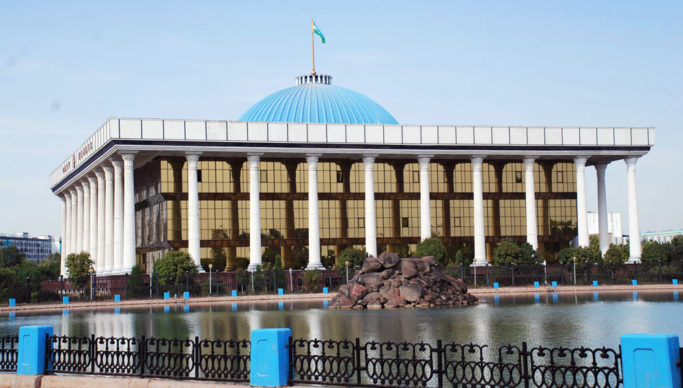
U.S. Monitor Concerned Over Uzbekistan’s Decline in Religious Freedom
- By Geoffrey Peters --
- 25 Sep 2023 --
The United States Commission on International Religious Freedom (USCIRF) has expressed serious apprehension over reports suggesting that the government of Uzbekistan is regressing from the positive strides Muslim-majority Central Asian nation.
An independent and bipartisan nine-member federal body that monitors and reports on freedom of religion or belief overseas and makes policy recommendations to the U.S. president, secretary of state and Congress, the USCIRF said in a September 22 statement that in the previous week there have been reports of Uzbek authorities carrying out raids targeting individuals based on religious affiliation.
Allegedly, these individuals have been fined and some are subjected to administrative detention. Additionally, the report noted, it has been reported that authorities have compelled Muslim men to shave their beards, while school administrators have exerted pressure on schoolgirls to either remove their hijabs or adjust the way they wear them.
Initially, Uzbek President Shavkat Mirziyoyev achieved significant progress in his presidency in promoting freedom of religion or belief by reversing many of the problematic policies of the previous administration, stated USCIRF Commissioner and former chair Nury Turkel.
“As Uzbekistan continues to reverse course on its reforms and further crack down on religious freedom,” Turkel said.
In its 2023 annual report, the USCIRF advised the State Department to include Uzbekistan on its Special Watch List due to the country’s widespread violations of religious freedom. In June, the monitor organized a conversation featuring the former United Nations Special Rapporteur on Freedom of Religion or Belief and a representative from Human Rights Watch to assess the state of religious freedom in the country.
Religious practice in Uzbekistan is greatly restricted and is influenced by official policies through legislation and unofficial methods enforced by security services and law enforcement agencies, the USCIRF statement said.
In early September, the Legislative Chamber of Uzbekistan’s parliament, known as the Oliy Majlis, advanced amendments to the nation’s criminal and administrative codes, the statement noted, explaining that the amendments were apparently aimed at safeguarding the state’s secular character but were expected to have potential implications for the religious freedom of individuals.
The statement pointed out that so far this year, Muslims have experienced arrests and incarceration due to their religious practices and in some cases, Muslim citizens chose to practice self-censorship out of concerns for their safety.
The USCIRF is especially troubled by reports indicating that a senior Uzbek government official has stated that civil servants must make a choice between their personal beliefs and their professional careers, said Commissioner David Curry.
“Everyone in Uzbekistan should be able to live and practice their religion in accordance with their conscience. The U.S. government must not overlook Uzbekistan’s declining religious freedom situation and should urge its counterparts there to protect this crucial right in line with Uzbekistan’s international commitments.”


















